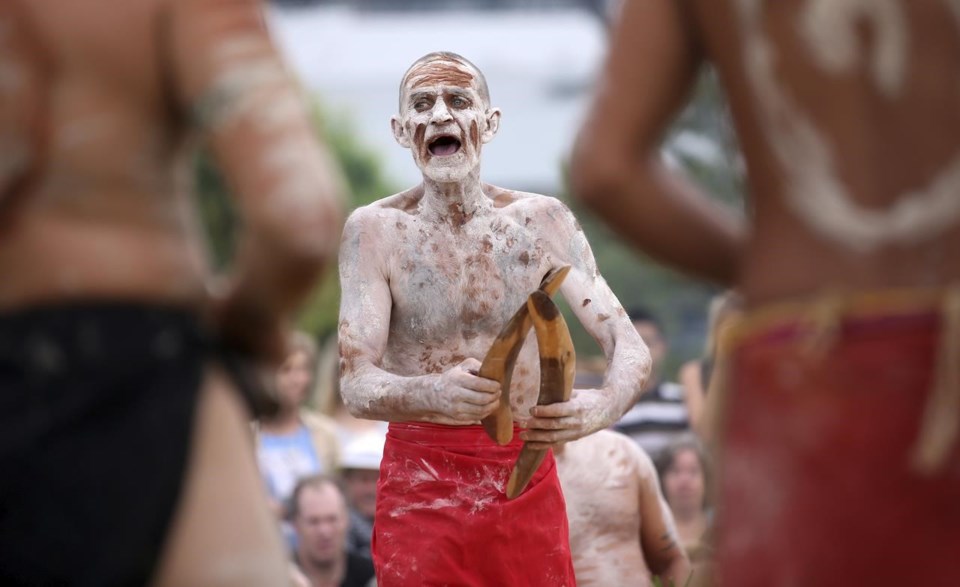CANBERRA, Australia (AP) — Australia’s House of Representatives voted overwhelming Wednesday for a referendum to be held this year on creating an Indigenous Voice to Parliament, an advocate aiming to give the nation’s most disadvantaged ethnic minority more say on government policy.
While the Voice would advocate for Indigenous interests, it would not have a vote on laws, and debate for and against the elected body has become increasingly heated and divisive.
The 121-to-25 House vote that approved the referendum being held does not reflect the level of lawmakers’ support for enshrining the Voice in the constitution. The opposition conservative Liberal Party voted in support of giving Australians a choice at a referendum but is also campaigning for the Voice to be rejected by the public.
The Senate will vote on the bill in June, and the bill needs majority support to ensure that Australia’s first referendum since 1999 takes place between October and December this year. A majority of senators have already flagged their support.
Minister for Indigenous Australians Linda Burney, the first Indigenous woman to hold the role, said the campaigning would begin in earnest with a successful Senate vote. She had "no doubt" the referendum would succeed.
“A yes vote at a referendum ... will move Australia forward for everyone. It will be a new chapter in our country's story,” Burney told reporters.
“And a yes vote will make a practical difference — I cannot stress that enough — the Voice will make a practical difference. Because the solutions to so many of our challenges can be found in the knowledge and the wisdom of local (Indigenous) communities,” Burney added.
Proponents hope the Voice will improve living standards for Indigenous Australians, who account for 3.2% of Australia’s population and are the most nation’s most disadvantaged ethnic group.
Australia’s Race Discrimination Commissioner Chin Tan, a racism law watchdog, has warned that focusing the public debate on race emboldens racists and exposes the Indigenous population to abuse and vilification.
The Liberal Party and the Nationals party, which formed a conservative coalition government for nine years until elections a years ago, argue the Voice would create a racial divide.
Opposition leader Peter Dutton has told Parliament the proposal would permanently divide Australians by race. “It will have an Orwellian effect where all Australians are equal, but some Australians are more equal than others,” Dutton said.
Prime Minister Anthony Albanese, who committed his center-left Labor Party government on election night last year to holding the referendum, said “scare campaigns” against the Voice would not find traction among most Australians.
“Australians won’t succumb to their appeals to fear and their ever-more ludicrous invitations to jump at our own shadows,” Albanese said in a recent speech.
Speaking in support of the Voice, government minister Tim Watts urged his fellow lawmakers to address Australia’s history of refusing to recognize or listen to its Indigenous people.
Watts quoted his own ancestor as a cautionary example: John Watts, a 19th century colonial lawmaker who had justified state-condoned extrajudicial police shootings of Indigenous Outback tribes.
“The natives must be taught to feel the mastery of the whites,” John Watts had told the Queensland state Parliament in 1861.
“The natives, knowing no law, nor entertaining any fears but those of the carbine (rifle): there were no other means of ruling them,” John Watts had added.
His descendant, Tim Watts, urged lawmakers in Parliament to: “Take this moment to be good ancestors.”
Opinion polls show the Voice has majority public support. But many observers say support is not yet high enough to indicate a successful referendum.
Of the 44 referendums held since the constitution took effect in 1901, only eight have been carried and none since 1977.
No referendum has ever been passed without the bipartisan support the major political parties.
The Voice was recommended in 2017 by a group of 250 Indigenous leaders who met at Uluru, a landmark sandstone rock in central Australia that is a scared site to traditional owners. They were delegates of the First Nations National Constitutional Convention that the then-government had asked for advice on how the Indigenous population could be acknowledged in the constitution.
The conservative government immediately rejected the prospect of the Voice, which it likened to a third chamber of Parliament.
___
Find more of AP's Asia-Pacific coverage at
Rod Mcguirk, The Associated Press




